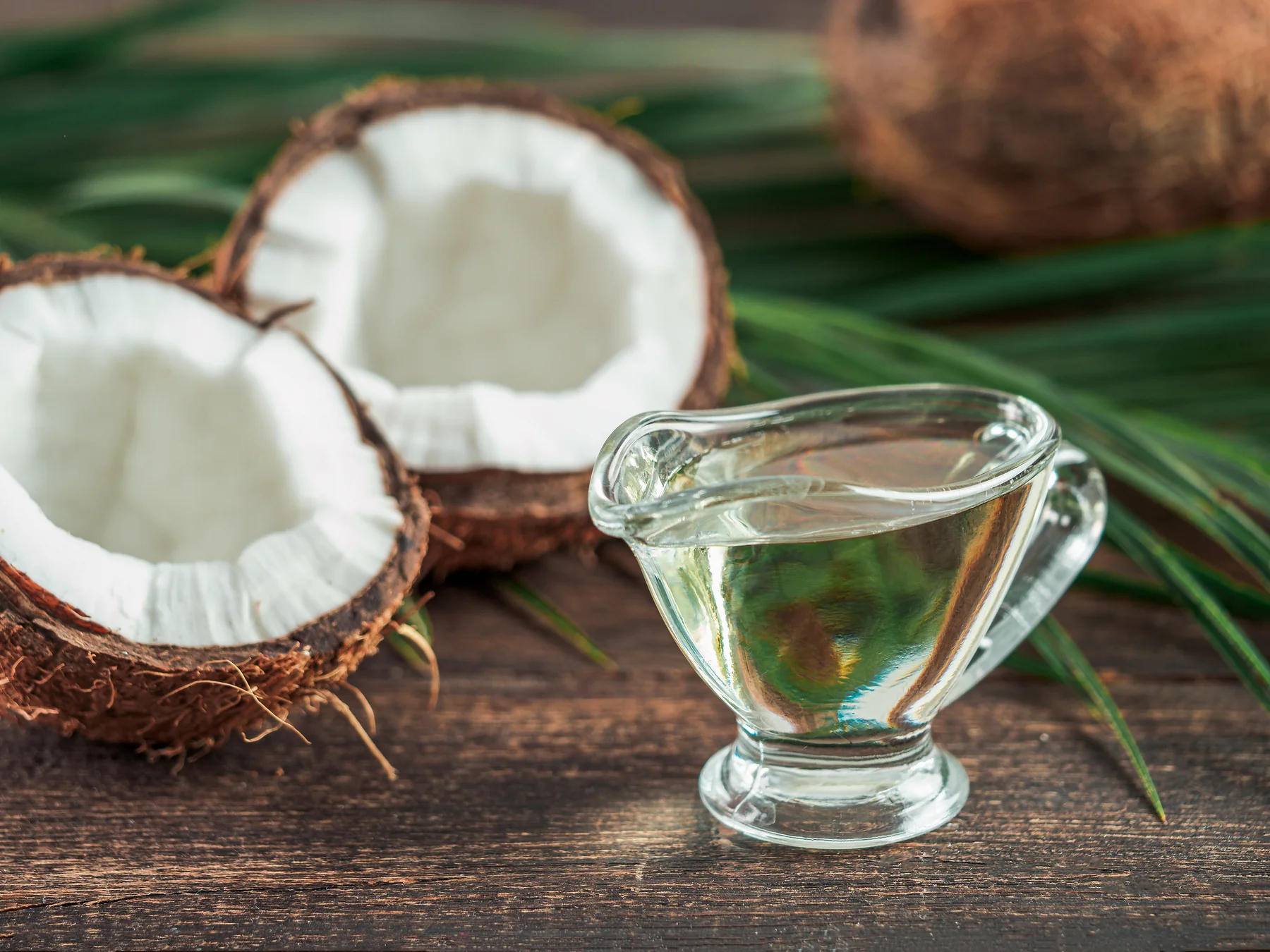Try Them Today
Try Them Today

When you think of triglycerides, you think of high cholesterol and heart disease. However, triglycerides is just another word for fat, which is a vital form of fuel. Medium-chain triglycerides (MCT) have been researched for their specific impacts on health and are found to help with weight loss, boost brain power, and improve digestion. However, there are also some side effects to watch out for. While MCTs are found in coconuts, palm kernels, and dairy products like butter, they can be taken as supplements in an isolated oil form.
Medium-chain triglycerides are healthy fats that offer several health benefits. Through the process of fractionalization, MCTs can be isolated and extracted from either coconuts or palm kernels. There are three types of MCTs, known as C6, C8, C10, and C12, which are the various fatty acids containing medium-length carbon chains of 6 to 12 atoms. You can supplement with MCTs on a daily basis, and the oil is tasteless.
MCTs can help with a number of common problem areas, such as mental clarity, weight management, cholesterol, and more. These are the major benefits supported by medical evidence:
MCTs are turned into ketones by your liver, which are natural by-products of the breakdown of stored body fat when it's required for energy. Ketones have the ability to cross what's known as the "blood-brain barrier" that regulates the substances allowed to penetrate the brain. Thus, your brain can absorb ketones to use for energy in the absence of glucose.
When your blood glucose levels are low, mental clarity gets curtailed by the brain's lack of energy. MCTs give your brain an additional source of energy to run on when glucose is unreliable. If you experience dips in your energy or bouts of brain fog throughout the day, ketones from MCT can keep your brain going.
Part of the cause for cognitive decline in elderly folks is insulin insufficiency. To derive glucose from food, the body needs insulin, which is known to decline in levels with age. If the brain isn't getting enough glucose, this can exacerbate neurodegenerative diseases like Alzheimer's and Parkinson's. Since ketones give an alternate source of fuel the brain can easily use, MCTs can help improve brain function in memory-impaired people, according to research published in Neurobiology of Aging.
The effects on young, healthy individuals have also been studied. In a four-week trial, MCT supplementation improved cognitive performance significantly compared to a placebo, starting after two weeks. According to a publication in The Lancet Neurology, brain cells can use ketones more efficiently than glucose, suggesting a reason for enhanced cognition resulting from MCT intake.
A healthy heart doesn't depend on cutting fat out of your diet, but on eating healthy fats that don't clog arteries, such as those found in fried foods. MCTs and other healthy types of fat lower your risk for heart disease by lowering LDL cholesterol levels and raising HDL cholesterol. HDL cholesterol is the "good" type of fat that keeps artery-clogging LDL cholesterol in check.
Animal studies show that substituting unhealthy fats with MCTs results in less fat deposit over lifespans. According to a review of several human trials on MCTs for heart disease patients published in Cardiovascular Drugs and Therapy, MCTs help with heart disease management by improving fat metabolism or the body's breakdown of fat for fuel. Other research suggests MCTs also help protect heart health by lowering inflammation — a factor that raises heart disease risk when chronic.
A meta-analysis of 13 clinical trials involving MCTs found that regular MCT intake leads to an average of 1.1 pounds lost over three weeks. While there's no magic supplement that can zap away pounds, MCTs work by boosting fat oxidation, or the process by which the body breaks down fat and burns it as fuel. This provides metabolic support, allowing you to burn more calories in the same amount of time. MCTs also induce thermogenesis, or the production of body heat, which also causes you to expend more energy.
MCT oil can cause uncomfortable side effects, particularly when taken for the first time. Gastrointestinal distress is the most likely side effect. Since MCTs are broken down by the gut differently than other fats, you may experience gas, bloating, diarrhea, nausea, stomach pain, or cramps. Typically these side effects are abated by reducing your dose.
You can take a teaspoon of MCT oil directly or add it to a smoothie or other drink. Since the oil is tasteless, it's easy to mix into oatmeal, yogurt, and other foods. Start with half a teaspoon of MCT oil a day and work your way up to a half or full tablespoon. There's no dosage considered the right one, but it's important to start slowly to avoid unwanted side effects. Even after your body has adjusted to MCTs, you don't want to take too much, or side effects are likely to occur.
Most vitamin and health food stores sell MCT oil supplements. Be sure the only ingredient in the supplement is 100% MCTs. Some MCT supplements even define the ratios of various MCT fats. Relative to C12, C6, C8, and C10 are responsible for the most health benefits. MCT oil is a high-calorie supplement, with each tablespoon of MCT oil containing about 115 calories, so keep in mind excess energy from MCT oil your body doesn't expend for energy will get stored as fat.